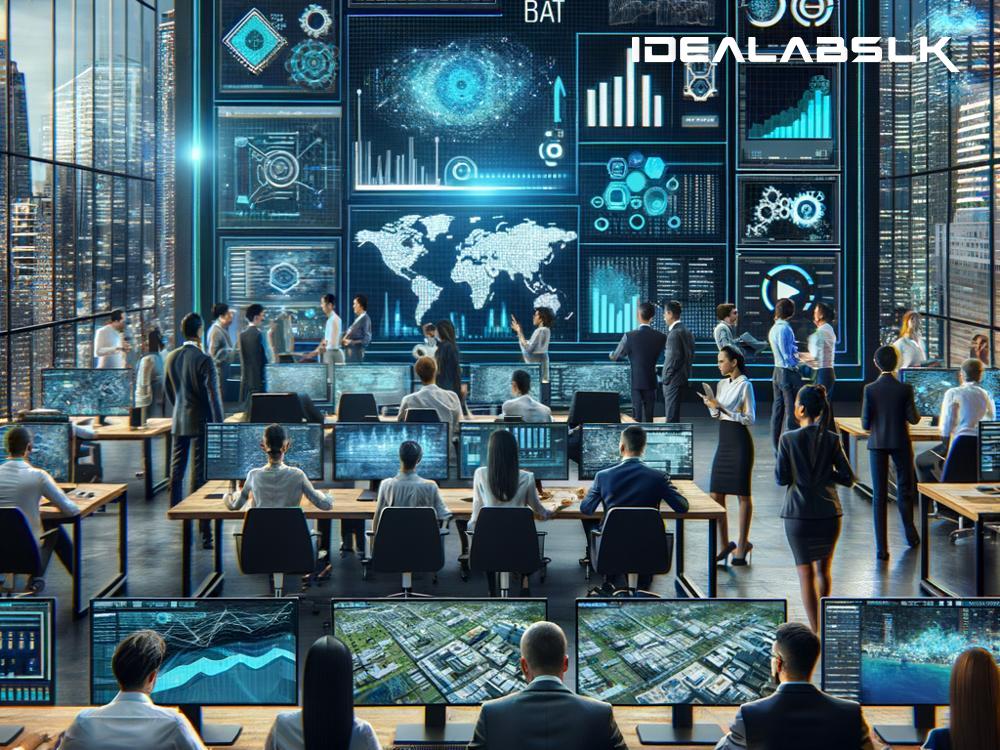Bridging Future Technologies: Blockchain and AI in Real Estate Property Development
The real estate industry, known for its traditional transaction methods and reliance on extensive paperwork, is on the cusp of a revolutionary transformation. The adoption of Blockchain and Artificial Intelligence (AI) technologies in real estate property development projects is not just a trend; it's a groundbreaking shift that promises to redefine how we buy, sell, and manage properties.
Understanding Blockchain and AI
Before we dive into their applications, let's simplify what Blockchain and AI mean. Imagine Blockchain as a digital ledger that is completely transparent and tamper-proof. It's like a record book where all transactions are noted down, and once something is recorded, it cannot be changed or deleted. This technology is what powers cryptocurrencies like Bitcoin.
On the other hand, AI is like a smart assistant that learns from data. It can analyze patterns, make decisions, and even predict future trends based on historical data. This smart assistant can help in various tasks, from understanding customer preferences to automating repetitive tasks.
How Blockchain is Changing Real Estate
Blockchain is introducing new ways to manage property transactions. Here's how:
-
Transparency and Security: Imagine being able to see the entire history of a property - from its construction to every single transaction it has been part of, all in one place. Blockchain makes this possible, enhancing the transparency and security of property deals.
-
Smart Contracts: These are self-executing contracts with the terms of the agreement between buyer and seller being directly written into lines of code. Smart contracts on the blockchain automatically enforce and execute contract terms, reducing the need for intermediaries and, consequently, the costs and time involved in transactions.
-
Tokenization: This refers to converting the value of real estate into digital tokens that can be bought, sold, or exchanged. Tokenization makes real estate investment more accessible, as it allows investors to buy a portion of a property, much like purchasing shares in a company.
AI's Role in Revolutionizing Property Development
AI in real estate is all about making intelligent predictions and automations. Here’s what it brings to the table:
-
Market Analysis and Predictions: AI systems can process vast amounts of data on market trends, pricing, and consumer behavior to predict future real estate values and investment hotspots. This insight is invaluable for developers in deciding where and what to build.
-
Enhanced Customer Experience: Through chatbots and virtual assistants, AI can provide potential buyers with personalized property recommendations, answer their queries anytime, and offer virtual tours, making the buying process more engaging and efficient.
-
Operational Efficiency: AI can automate routine tasks such as document verification, payment processing, and even maintenance requests in managed properties. This not only reduces costs but also allows real estate professionals to focus on more strategic tasks.
The Synergy of Blockchain and AI in Real Estate
When Blockchain and AI come together, they create a synergized platform that could very well be the foundation of future real estate transactions and developments. Here’s a potential scenario of their combined power:
- Blockchain provides a secure, transparent ledger for all transactions and property data.
- AI uses this data to forecast market trends, identify prime investment opportunities, and personalize customer interactions.
One compelling application is in the realm of project financing. Traditionally, real estate financing involves a lot of paperwork, background checks, and time. With Blockchain, the financial credibility of a buyer can be securely and transparently verified. AI can further speed up this process by quickly analyzing a buyer's financial history and making instant loan approval decisions.
Looking Ahead
The integration of Blockchain and AI technologies in real estate property development is still in its early stages, but the potential benefits are undeniable. These technologies promise to make real estate transactions more secure, transparent, and efficient.
However, it's not without challenges. Regulatory hurdles, data privacy concerns, and the need for widespread digital literacy are some of the barriers that need to be addressed. But with the pace of technological advancements, it's only a matter of time before Blockchain and AI become mainstream in real estate.
In conclusion, the fusion of Blockchain and AI is set to revolutionize the real estate industry by making property development projects more accessible, reducing transaction times, and enhancing the overall buyer experience. As these technologies continue to evolve, we can expect even more innovative solutions to emerge, reshaping the world of real estate as we know it.

